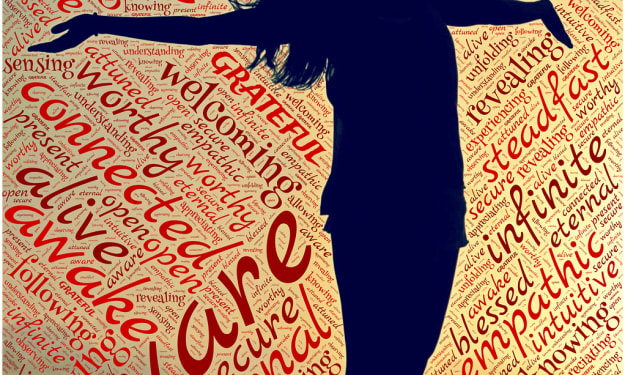Understanding other people
Predicting feelings

Put yourself in the following circumstance: You're asked to a party by a buddy. You find out that everyone in your circle of females was invited, with the exception of Paula. What do you think Paula's reaction will be once she learns?
A. furious
B. depressed
C. injured D. left out
E. perplexed
F. anxious
G. humiliated
H. uninterested
You likely thought of your response by placing yourself in Paula's position and picturing how you would feel. The majority of persons in this circumstance will experience at least some of the feelings A through D: rage, sadness, pain, and exclusion. Someone who is excluded is less likely to experience confusion, anxiety, embarrassment, or indifference.
The ability to anticipate others' feelings is a component of emotional intelligence, or EQ. We can all learn it with some practise.
Our relationships with other individuals can be guided when we are aware of their anticipated feelings. What if, in the aforementioned party scenario, Paula enquired, "Are you going to Regan's party?" Your reaction is undoubtedly influenced by the fact that she wasn't invited. Any of the following might be spoken (or avoided):
"Yes, I'm going—are you?"
B. "I'm going, yes. I hesitate to tell you. She didn't invite you, is that true?
"Yes, everyone is leaving," C.
D. "I'm going, of course!" The finest party of the entire year is going to be held there.
E. "Yes.
" E. "Yes. I regret not inviting you. Since her parents reportedly only let her to ask a select few people, I don't believe Regan intended to offend you.
You may choose option A, C, or D if you were unaware that Paula was not invited. But now that you know the whole scenario, you're more likely to take Paula's sentiments into account and select either B or E as your response. When you are certain that the other person has been invited, you would say something along the lines of answers C and D.
Interpreting Body Language
Sometimes what someone says or does not say might reveal more about a situation: Reading and interpreting social cues is a component of emotional intelligence.
Let's imagine Paula comes over to you and she seems distressed. She
most likely have sympathy for her. You chose your words carefully because you are aware that they have the power to either make her feel supported or worse.
Understanding Reactions
Understanding other people not only enables us to anticipate how they might feel in a certain circumstance, but it also enables us to make sense of their responses.
For instance:
Your pal is upbeat, cheerful, and smiling in homeroom at eight o'clock. He appears disturbed later that day, nearly ready to cry. Which hypothesis best describes what may have occurred between these two points?
A. He and his girlfriend stopped communicating after a quarrel at lunch.
B.He completed algebra in the fourth term.
C. He recently learned that he was not selected for the varsity basketball team.
D. There was a tonne of homework given by the chemistry teacher.
E. He merely had a rough day, most likely.
You probably eliminated B right away: Your friend's behaviour seems more like it would result in a failing grade than a passing one, according to emotional intelligence. Your friend could appear anxious, exhausted, or worn out if he had a difficult day or a lot of schoolwork (options D or E), but he probably wouldn't be crying. You may focus on what is most likely to be bothering your buddy by eliminating those possibilities: choices A or C.
People who are adept at comprehending others can predict another person's emotions ("I suppose he'll feel bad if I tell him that). They can identify with how that individual responds to situations ("Oh, I totally get why she got furious like way. No surprise!"). Better connections may be developed when we are aware of how others feel, act, and respond.
How to Develop This Ability
It's not always simple to anticipate or comprehend another person's emotions. Although some are more skilled than others, almost everyone can get better with practise. The key to understanding others is to observe and pay attention.
It Begins by Watching
You undoubtedly groan and say, "Ouch!" when you witness someone trip and fall. We have an innate propensity to perceive other people's emotions just from observing them. According to scientists, there is a biological the cause of this. They contend that whether we do an action ourselves or observe someone else performing one, "mirror neurons" in the brain respond in the same manner.
Try these strategies to hone your observational abilities:
View the facial emotions and body language of others. Try this the next time you're in the mall, at a coffee shop or travelling by bus or tube: Observe the individuals around you and try to deduce their possible emotions from their actions, body language, and facial expressions. There may be a test coming up for the girl with the books on her knee. Does she appear confident or under pressure? What about the one who is sleeping? Is he at ease right now? Tired? Upset?
Good listeners tend to be those who understand others well. According to research, people feel more connected to others who are speaking when they listen well. This fosters a sense of intimacy and connection.
The majority of us think of ourselves as good listeners since it seems like such an obvious, fundamental skill to possess. But more often than not, we spend more time thinking about what we want to say than we do really listening. Here are some techniques for improving listening:
Practise attentive listening in regular talks. Listen intently to what the other person has to say. Develop the mindset that talking is less essential than listening.
Be aware of both your sensations and your stories. When a buddy shares a story with you, try to picture how the person could have felt. Attempt to comprehend your friend's perspective by using phrases like "Oh, that must have felt amazing!" or "That must be upsetting for you." You'll probably feel more "in sync" and connected to the individual. Perhaps you'll discover that you can foretell what your pal will say next.
Spend some time giving someone a careful hearing. Ask a friend or relative about a memorable period in their lives. For instance, encourage your grandparents to tell you about having their first kid or ask your parents about their wedding day. Try to imagine what the experience was really like for them. Ask them to tell I'll tell you more about how they felt and why.
Turning Compassion into Understanding
How do you put what you've learned about understanding people to use? Like the majority of individuals, you probably utilise it to support and assist the people you care about. This is compassion, and compassion fosters interpersonal connections. Try these three strategies to show compassion:
Seek out the needs of others. If a buddy is struggling, find out what you can do to support them. If your buddy replies, "I don't know," consider what you would desire in the same circumstance, then propose to do a comparable action.
Be genuinely interested in other people. Be enquisitive about the individuals you know, but not in a phoney or inquisitive way.
a manner that demonstrates your want to learn more about them. For instance, inquire about their interests or their thoughts, feelings, and opinions.
Be nice to others. Consider how it might feel to be the target of rumours, mockery, or cruel taunting as soon as you overhear them. That can help you become sensitive to other people's emotions and refrain from participating.
Positive social ties may be forged via even little acts of kindness (see how you feel by saying "hi" to someone eating alone at lunch). Strong social ties have an impact on our health, happiness, and even how long we live, according to scientists.
About the Creator
Komal Shah
Content writer , Self Development, Health, Law of attraction many more






Comments
There are no comments for this story
Be the first to respond and start the conversation.